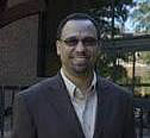Commentary on Luke 14:25-33
Luke is interested in stories about Jesus and his family.
It’s the only Gospel that tells us that John the Baptist and Jesus were related, probably cousins (cf. 1:36). And, it’s the only Gospel to provide a story about the young twelve-year-old Jesus (cf. 2:41-52). On the one hand, this story is told to exemplify Jesus’ developing wisdom (cf. 2:47-48). On the other hand, it is a story that expresses a tension between Jesus and his parents (cf. 2:48-49). Luke ends the story on a happy note by describing Jesus as an obedient child (cf. 2:51). All is well in this first-century Jewish family’s home. Yet, this was a snapshot of things to come in Luke’s story.
Commentary
Jesus’ radical teaching continues in Luke 14:25-33. His selection criteria for increasing the pool of disciples are stringent. First, his followers must be people of “hate” (14:26). Second, they must be willing to “carry the cross” (14:27). Third, a willingness to relinquish possessions may also be necessary (14:33).
To be clear, Luke’s Jesus offers much harsher language than Matthew’s Jesus on the expected ongoing relationships of disciples with their families in light of becoming followers of Jesus (cf. Matthew 10:37-38). Perhaps it is because Luke’s Jesus addresses a large crowd rather than the disciples specifically (as in Matthew), so Jesus’ intention is to turn away half-hearted, potential followers. What is certain is that Jesus is not interested in growing his group just for the sake of growth!
The language of “hatred” has surfaced elsewhere in the wider narrative. Jesus points out that many will hate his followers because of their association with him (cf. 6:22, 27; 21:17), but they should return the hate with love (cf. 6:27). More likely, Jesus’ hyperbolic language in our passage under discussion — to hate one’s own family — is simply to stress the seriousness of taking the journey with him to Jerusalem.
In the first century, Jewish families were central, so the implications of and challenge of Jesus’ words are real. Jesus seeks singularly devoted persons, undistracted by the cares of daily life. This may explain why most of his disciples were probably unmarried (though Peter is one exception). And, most of the women who approached Jesus were also single (cf. 8:1-3).
On the other hand, family members would certainly disapprove of Jesus’ instructions, since it involves a commitment that may detract from a person’s familial responsibilities in order to follow the prophet. In first century life, many family members were engaged in the same family occupation. So, losing one of its members to ancillary (religious) interests could be detrimental to the family’s well being. But, as Jesus will stress elsewhere, it’s impossible to serve two masters (cf. 16:13). He uses love/hate language there as well. Jesus desires serious seekers with dedicated devotion.
So, the following two examples from everyday experience of first century Jewish life is no surprise. Jesus compares becoming disciples to buildings and battles. Who wastes time, effort and resources on a building project, before knowing whether funds will be available to complete the project? In first century life, most of the people in Jesus’ crowds would understand the need to not waste one’s earnings, even if they were not involved personally in construction projections.
Or, which king would not secure peace with his opponent if he thinks his military force is outmanned? A Jewish Greco-Roman audience would be quite familiar with both examples, of building and battles, which were part of their common experience. [It may also say something about the economic status of Luke’s audience.] Jesus’ forewarning allows potential followers to consider and re-consider the cost of taking up his mission.
And, in Jesus’ day, it really did cost something. Families were divided over following the Jewish prophet from Galilee (cf. 12:51-53). In the end, Jesus does not want the audience to misunderstand what’s at stake if they plan on continuing with him on his journey. Unless his followers are willing to “hate” family and one’s self (cf. 9:23), take up their cross, and relinquish their possessions, they are not ready to follow the prophet from Galilee. Jesus is headed to “Jerusalem, Jerusalem,” a place in which prophets die (cf. 13:34) and he chooses to reveal the clarity of the cost of the mission.
Apparently, Luke’s Jesus’ odd call for more willing disciples seems to address male figures only, even if we presume the presence of women in the “large crowd” in Jesus audience (cf. 14:25). The language of “wife” and hating “his” own life (cf. 14:26) seem to support this; yet, the presence of women followers in Luke’s Gospel is also highlighted (cf. 8:1-3).
In the first century culture, the numerous stories about women in the public sphere surrounding Jesus’ mission — something we would not expect generally speaking — must be evidence of the active presence of female disciples in the early Jesus movement. In that sense, Luke’s Gospels sets a trajectory that many of us wish to continue to foster and promote.
In the later narrative of Acts, Luke will depict the early church carrying out a vision of Jesus’ teaching with respect to possessions that places them in community with one another. The Acts account appears as a less radical — but perhaps more realistic — vision of the commitment, as the believers “had all things in common; they would sell their possessions and goods and distribute the proceeds to all, as any had need” (Acts 2:44-45 cf. 4:32-34). The language of Luke 14:33 is fulfilled but in a slightly modified manner.
So what?
Jesus’ radical call is tough to preach in our society, a setting in which “family values” takes center stage in our political and rhetorical discourse. And, what follower of Jesus doesn’t love one’s family? But Paul, apparently, understood the basic nature of Jesus’ expectations, since, he, too, chose not to marry (cf. 1 Corinthians 7). For both Jesus and Paul, their eschatological visions affected their ethical and behavioral choices. Today, many no longer subscribe to the intense expectations of the end of the world, even if some hold on to a sense of the end in their theological systems.
Today’s contemporary Church has to wrestle with the reality of following a radical, counter-cultural prophet. His message and actions will not always be easy to follow or to transfer simplistically into our twenty-first century context.


September 8, 2013